Discóbolo
Round cards from Brazil aiming to establish a link between astrology and playing cards.
At first sight, this pack has very little to do with ‘normal’ playing cards apart from the number of cards in each of the two packs. However, a system has been created using the four elements, the sun and different moons, and different planets to correspond with all the cards in the pack. The traditional French suits are represented by fire (H = lightning bolt), earth (D = five-pointed star), water (S = two waves), and air (C = infinity sign). The aces are suns with a human face, the kings are crescent moons, the queens are full moons, and the jacks are waning moons. Each of the numbers is represented by a planetary sign. In addition, each of the court cards includes one of the signs of the zodiac in its centre (ram, lion, etc.) and each of the numeral cards depicts a planet (repeated in each suit). The backs are red or blue.
Getting used to this system must have been a challenge. This is not helped by the circular cards being marked only twice rather than four or more times. As for how to use the cards, without a knowledge of (Brazilian) Portuguese this could be difficult. The name of the pack, Discóbolo, means ‘discus thrower’ in Portuguese, hence the circular shape. • See the box
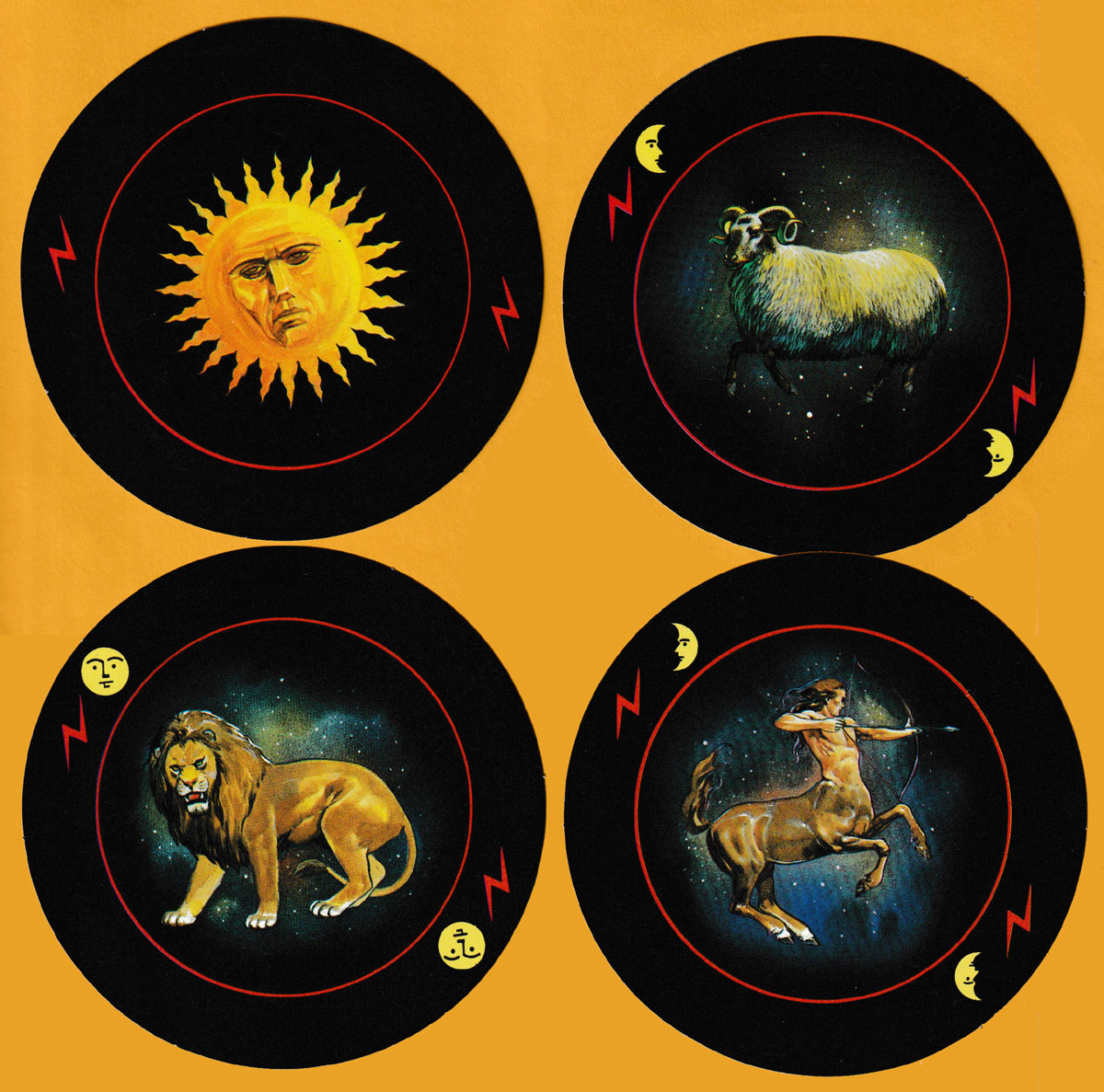
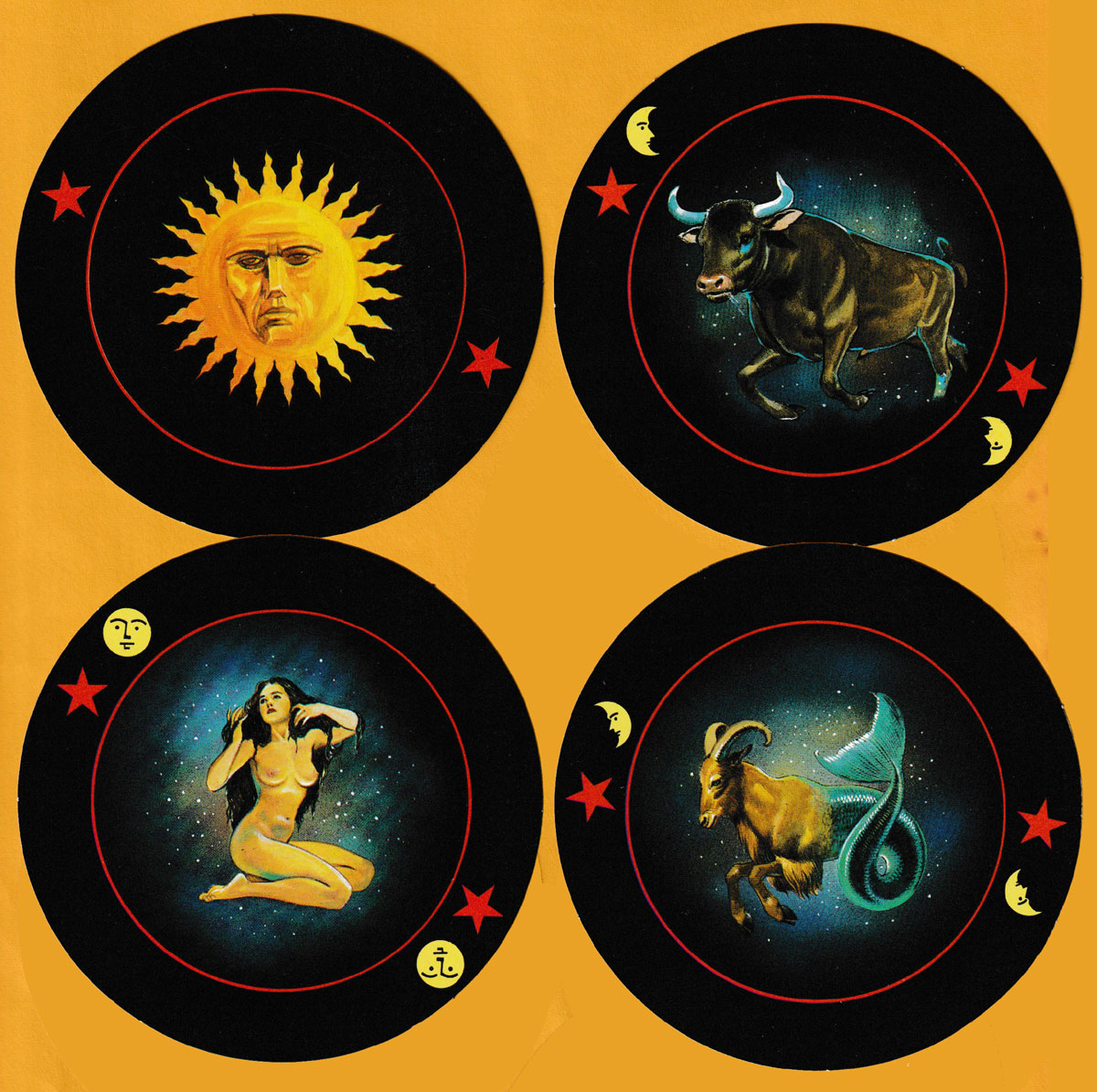
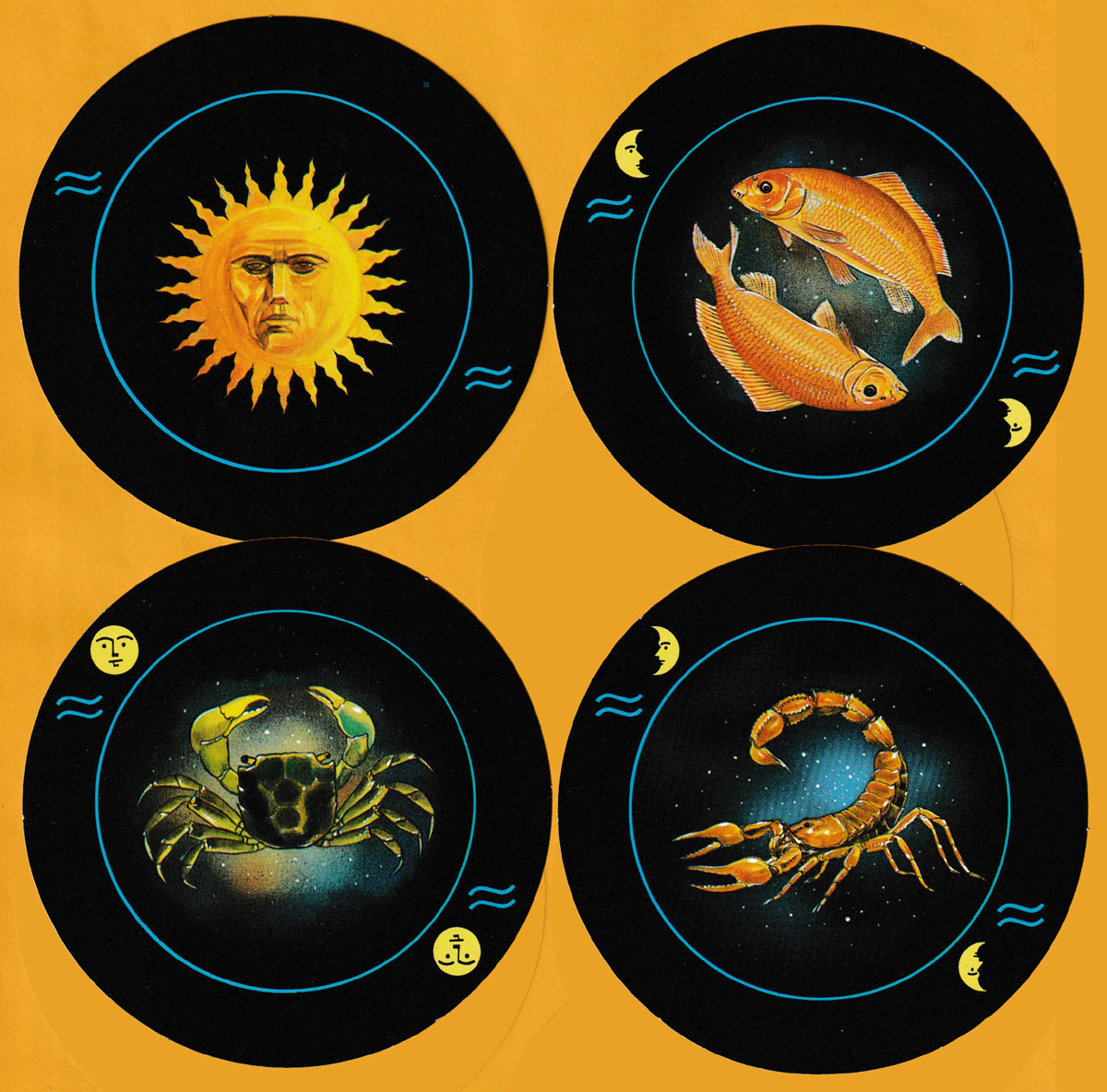
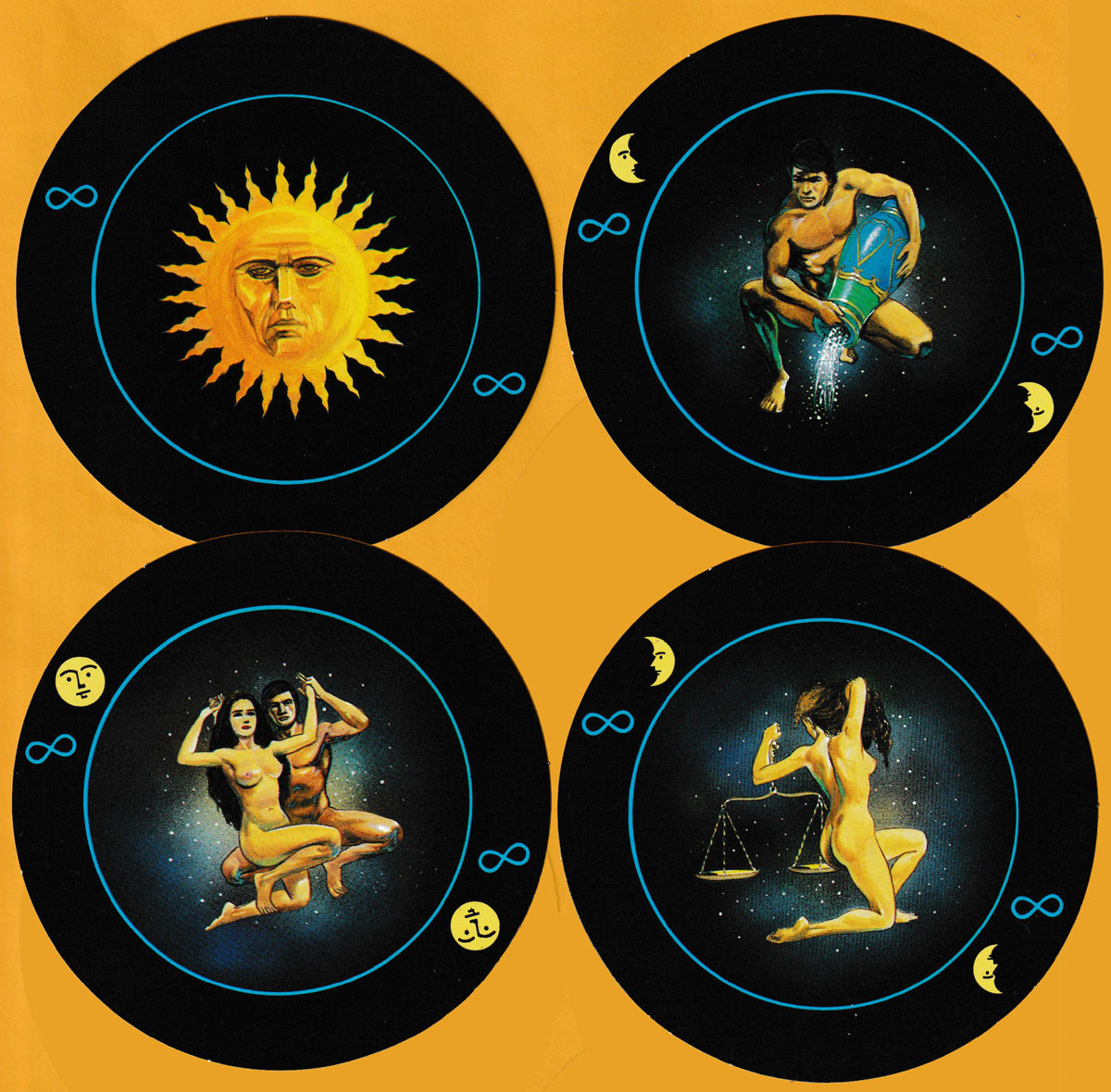
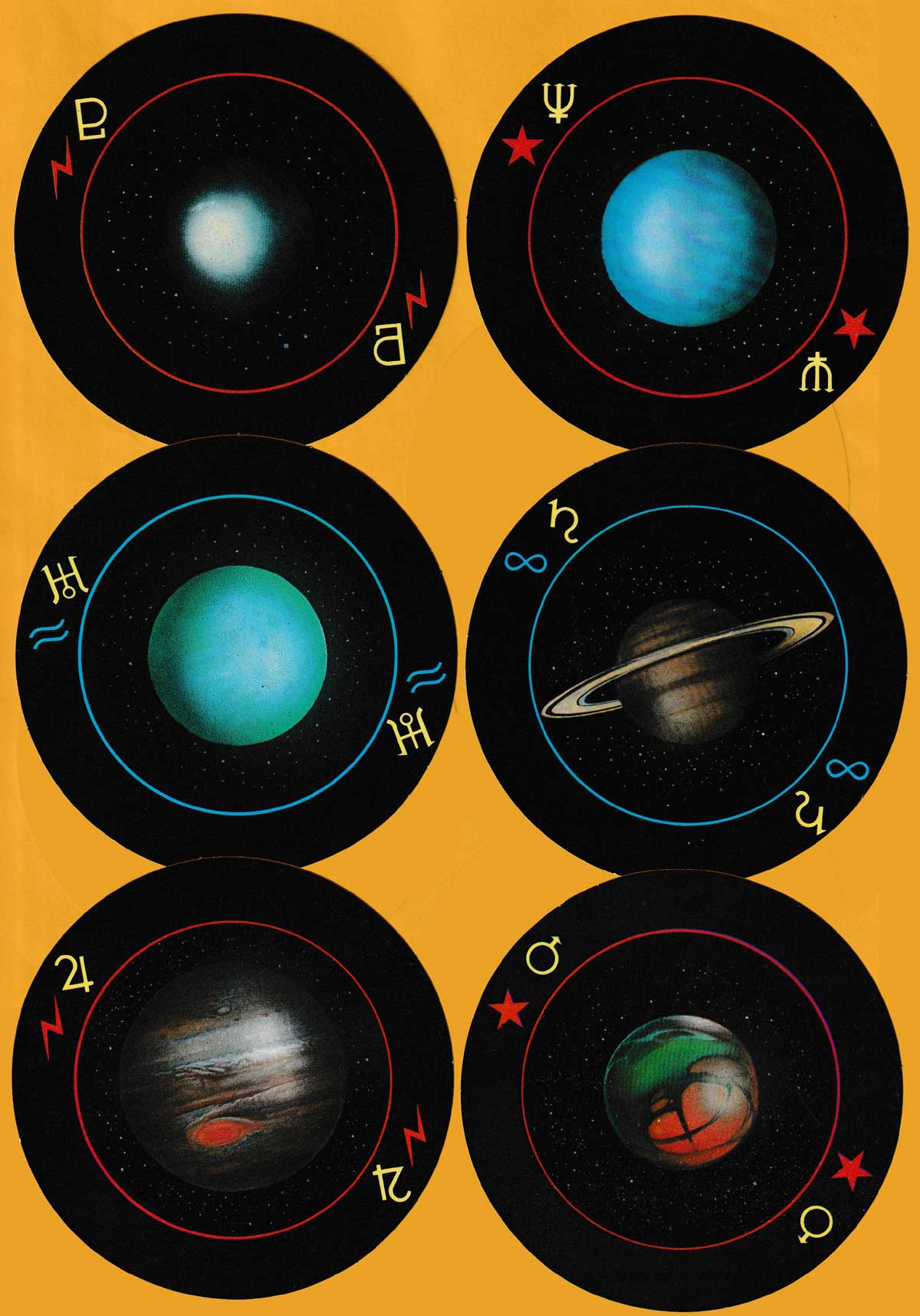
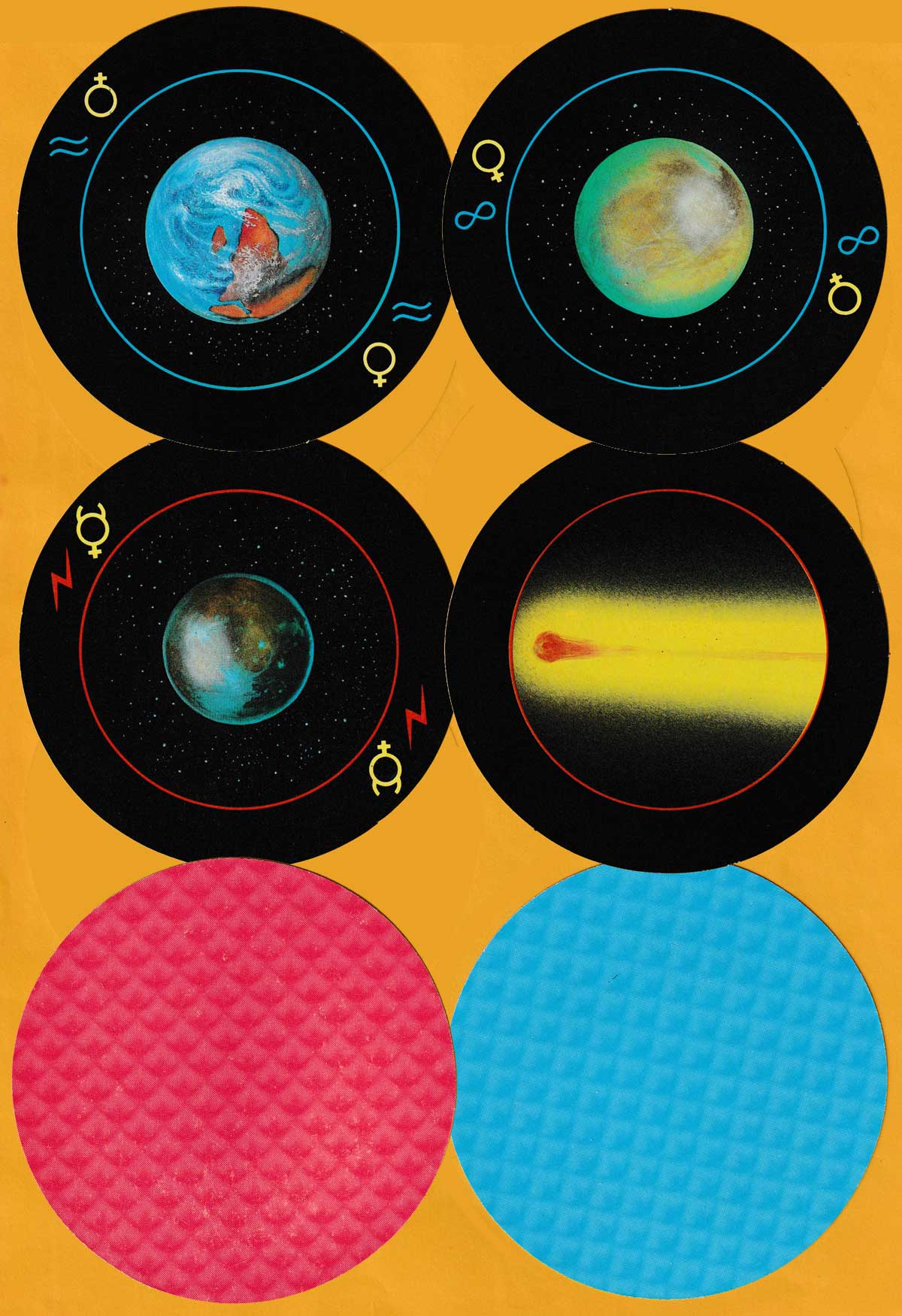
Above: Discóbolo astrological playing cards printed by Gráfica Unida Ltda. for Logos & Ludus Ltda., São Paulo, Brazil, 1990. 2 x 52 cards + 2 (identical) Jokers + 32-page booklet in Portuguese in large, flat box. Size: 100 mm (diameter).
The notes on the box, written by Luis Pellegrini, trace a lineage from ancient Egyptian and Greek wisdom through to medieval Europe, where such knowledge was preserved by scholars, alchemists, Kabbalists, magicians, and astrologers. Tarot is mentioned as part of this esoteric tradition. The deck’s unusual circular shape likely alludes to cosmic cycles and astrological charts, reinforcing its metaphysical orientation. Published by Logos & Ludus Ltda., this set appears designed to appeal to enthusiasts of occult and astrological studies. However, given the scarcity of information available online, it seems unlikely that the deck enjoyed significant commercial success. Despite its strong visual identity and alignment with popular themes like astrology and tarot—which remain especially appealing to younger audiences—it may never have developed the following required to attain cult status.
By Roddy Somerville
France • Member since May 31, 2022 • Contact
Roddy started collecting stamps on his 8th birthday. In 1977 he joined the newly formed playing-card department at Stanley Gibbons in London before setting up his own business in Edinburgh four years later. His collecting interests include playing cards, postcards, stamps (especially playing cards on stamps) and sugar wrappers. He is a Past President of the Scottish Philatelic Society, a former Chairman of the IPCS, a Past Master of the Worshipful Company of Makers of Playing Cards and Curator of the WCMPC’s collection of playing cards. He lives near Toulouse in France.

Leave a Reply
Your Name
Just nowRelated Articles
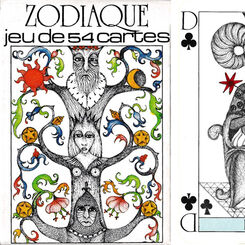
Zodiaque
“Les Signes du Zodiaque” playing cards designed by Youdi des Aubrys.
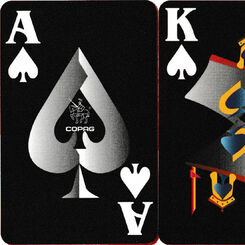
EPOC playing cards
Modern designs by Brazilian artist Maria Leonor Décourt inspired by standard English pattern courts....

Les “Œufs de Cartes” de Krasno
Egg-shaped cards created by Rodolfo Krasno employing photographic images by Michel Leclerc.
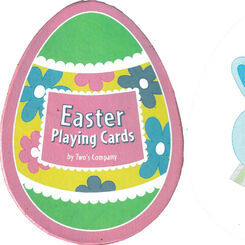
Easter Playing Cards
Egg-shaped cards with rabbit designs in soft, pastel colours for Easter.
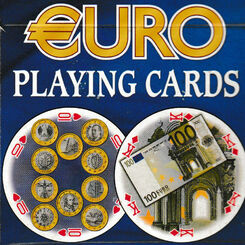
Euro Playing Cards
New euro banknotes and coins from several countries on circular cards.

Cartas Portuguezas
Portuguese pattern playing cards published in Rio de Janeiro, Brazil, late 19th century.
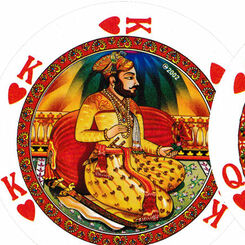
Ganjifa™
A colourful pack of round cards with Ganjifa designs by Asha Industries, Mumbai, India, 2002.
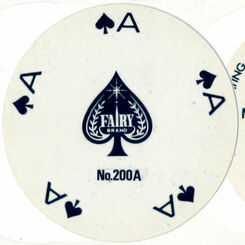
Fairy Brand Round Playing Cards No.200A
Fairy Brand Round Playing Cards No.200A
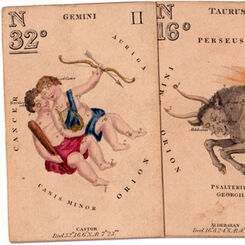
Hodges’ Constellations
Hodges’ pack dealing with astronomy had numeral cards carrying diagrams of constellations and their ...
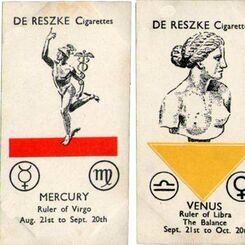
De Reszke Cigarettes “What the Stars Say”
De Reszke Cigarettes “What the Stars Say” astrology cards issued by J. Milhoff & Co., 1934.
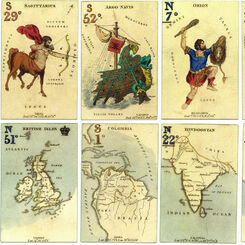
Charles Hodges
Charles Hodges produced engraved geographical and astronomical decks, London, c.1827-30.
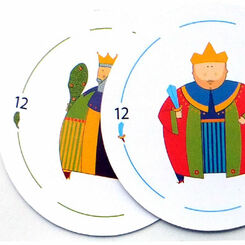
Fate Circular Deck
Circular Spanish-suited playing cards for FATE, 2007
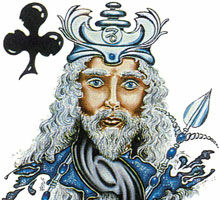
Zodiac Bridge
Zodiac Bridge was designed by René Marcel Rivière and printed by AGM Müller in c.1989. A different s...
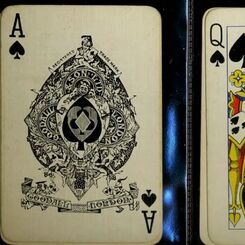
8: Standard English Cards in Latin America: Argentina, Brazil and Chile
A brief survey of the designs of English cards in South America.

SOIMCA
SOIMCA - Sociedade Impressora Caxiense - is an important playing card manufacturer in Brazil. It was...

Cartográfica Industrial, Curitiba, Brazil
Double advertising pack made by Cartográfica Industrial for Refrigeração Parana S.A. The extra card ...

Vale Tudo - Cartas para Jogar
Vale Tudo - Cartas para Jogar, manufactured in Sao Paulo, Brazil. The courts are standard English pa...

VELCAP circular, c.1980
VELCAP circular playing cards made by Cappellano S.A., c.1980.

Waddington’s Cir-Q-Lar Playing Cards
Waddington's Cir-Q-Lar Playing Cards, c.1930
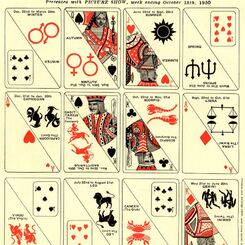
Picture Show — Zodiac Fortune Telling Cards
Zodiac Celebrities fortune-telling cards presented with 'Picture Show' magazine, 1930. The cards wer...
Most Popular
Our top articles from the past 60 days


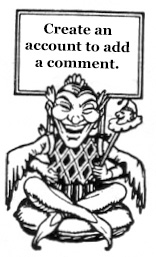 Your comment here. Your comment here. Your comment here. Your comment here. Your comment here. Your comment here. Your comment here. Your comment here. Your comment here. Your comment here. Your comment here. Your comment here. Your comment here. Your comment here. Your comment here. Your comment here. Your comment here. Your comment here. Your comment here. Your comment here. Your comment here. Your comment here. Your comment here. Your comment here. Your comment here. Your comment here. Your comment here. Your comment here. Your comment here. Your comment here. Your comment here. Your comment here.
Your comment here. Your comment here. Your comment here. Your comment here. Your comment here. Your comment here. Your comment here. Your comment here. Your comment here. Your comment here. Your comment here. Your comment here. Your comment here. Your comment here. Your comment here. Your comment here. Your comment here. Your comment here. Your comment here. Your comment here. Your comment here. Your comment here. Your comment here. Your comment here. Your comment here. Your comment here. Your comment here. Your comment here. Your comment here. Your comment here. Your comment here. Your comment here.




















